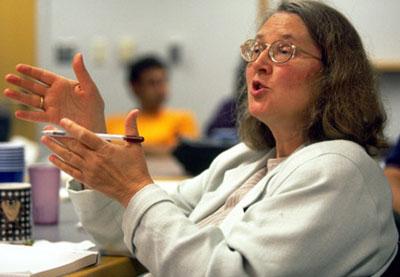Three American scientists win 2009 Nobel Prize for Medicine
2009-10-06 07:58 BJT
STOCKHOLM, Oct. 5 (Xinhua) -- Elizabeth H. Blackburn, Carol W. Greider and Jack W. Szostak, all from the United States, won the Nobel Prize for Medicine for 2009 on Monday.
 |
| An undated photo shows Elizabeth Blackburn from the University of California in San Francisco. Australian-American researcher Blackburn and Carol Greider and Jack Szostak of the United States have won the Nobel Medicine Prize on Monday for identifying a key molecular switch in cellular ageing. (Xinhua/AFP Photo) |
The trio were awarded the prize for the discovery of "how chromosomes are protected by telomeres and the enzyme telomerase,"the Nobel jury -- the Nobel Assembly announced at a press conference at Karolinska Institute in Stockholm, Sweden.
The Nobel Laureates of 2009 have solved a major problem in biology: how the chromosomes can be copied in a complete way during cell divisions and how they are protected against degradation, explained Professor Rune Toftgard, member of the Nobel Committee, who gave an introduction about the discovery at the press conference.
He added, the solution is to be found in the ends of the chromosomes -- the telomeres -- and in an enzyme that forms them -- telomerase.
"The importance of the discovery has its main implications in our understanding of disease process such as stem cell maintenance, cancer, inherited diseases and aging," Professor Rune Toftgard told Xinhua.

 Mail
Mail Share
Share Print
Print


 Video
Video









 2009 China Central Television. All Rights Reserved
2009 China Central Television. All Rights Reserved